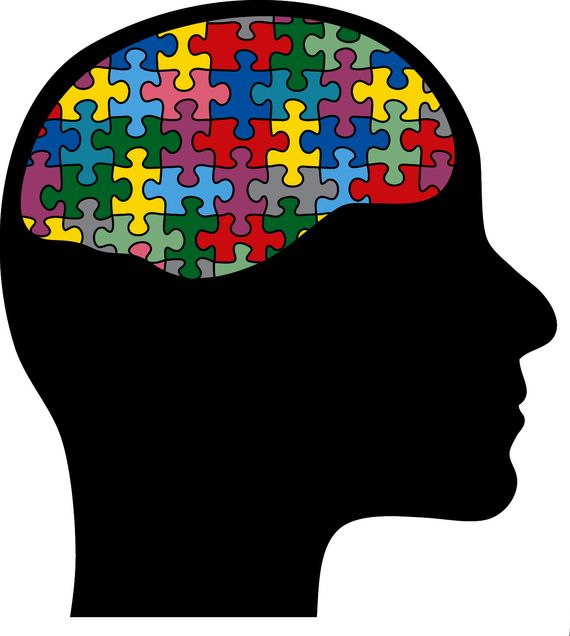By Melissa Heller
Exercise as a Solution for ADHD

With the diagnosis of ADHD in children on the rise, there is a push for researching a treatment and possible solution as well. There have been numerous studies done on a correlation between increased physical activity and a higher degree of paying attention in those children with ADHD. So, is exercise the treatment that we are looking for?
In a study in the Journal of Abnormal Child Psychology, children in an elementary school classroom setting were randomly assigned to either a physical activity (PA) group or a sedentary classroom (SC) group for 31 minute periods per day for 12 weeks. Parents and teachers were asked to rate ADHD symptoms such as inattention, hyperactivity/ impulsivity, oppositional behavior and moodiness before and after the study was completed. The first analyses of this study found that the PA group was more effective at reducing inattention and moodiness at home. Follow up analyses found that the PA intervention reduced impairment associated with ADHD both at home and at school. An unexpected finding that the SC intervention was potentially useful for managing these ADHD symptoms was also found in this experiment. This study was done with a liberal analysis and without a control group, so that is important to note as well.
New Research Suggests a Prenatal Cause and a Possible Treatment of Autism
For years, the brain of a child with autism has been a mystery. Doctors and parents wondered about the cause of autism, and it seemed that they would never get those answers. Autism is characterized on a spectrum with various expressions of difficulty with social interaction including difficulty with verbal and nonverbal communication. Children with ASD (Autism Spectrum Disorder, the official title of ‘autism’ after the May 2013 publication of the DSM-5) are associated with difficulties with motor coordination, attention, intellectual disabilities, and physical health problems like sleep and gastrointestinal problems. Autism is usually presented by age three and the process of diagnosing autism continues to change, according to the Autism Speaks foundation.
Dr. Thomas R. Insel, director of NIMH at the NIH says that “while autism is generally considered a developmental brain disorder, research has not identified a consistent or causative lesion.” The newest reports show that the architecture of the autistic brain is “speckled with patches of abnormal neurons.” In the study published in the New England Journal of Medicine, there is evidence that the brain irregularities of children with autism are due to abnormal prenatal development.
Are Men More Forgetful Than Women?
If you have ever noticed that men tend to forget things quite often, especially compared to women, you are not alone. A research team led by Professor Jostein Holmen in Norway conducted a large, longitudinal population health study called Hunt3 to reach the conclusion that men are more forgetful than women, regardless of their age. This is one of the largest health studies ever performed, with answers from over 48,000 people leading to their conclusions.
The participants were asked at the beginning of the study if they had problems remembering things, if they had problems remembering dates and names, if they had a memory of what they did one year ago, and if they could remember details about specific conversations.
Temptation: The Effects of Immediate and Delayed Rewards
As we approach the loved holiday season, we also approach the dreaded weight gain that comes along with it. It probably won’t come as a surprise to you that our brain, specifically the hippocampus, plays a role in resisting immediate or delayed temptation.

The hippocampus deals with memory, including recalling past events and imagining them in the future. A study called “A Critical Role for the Hippocampus in the Valuation of Imagined Outcomes” examines healthy people as well as people with Alzheimer’s disease, which impairs memory and is associated with atrophy of the hippocampus. The study looked at “time- dependent” choices having to do with money in addition to “episodic” choices having to do with food, sports, and cultural events.
Brain Food: What to Eat in Order to Study More Effectively

Brain Food to Smile About
It’s almost time for the dreaded fall midterms. Somehow, midterms manage to be even more stressful than finals. Maybe it’s because of the time of year they fall, which is easily the most beautiful time to be living in Boston. You just want to spend time outside walking on the esplanade, looking at the beautiful red and orange leaves on the trees that line the river and watching the rowing teams pass you by. Well, it may actually be beneficial to take some time out of your studying to take a stroll along the river, or to just sit on a bench for a little while. In fact, take some time to picnic this fall with some brain food, because studies show that it will enhance your studying experience.
Some of these brain foods include foods that you’d expect. These are the foods that your mom has been forcing down your throat, whether you like them or not, for as long as you can remember. But take a step back and think about why. Berries, for example, provide neurological benefits. They have a ton of antioxidants which will protect you from bacteria that make you sick when you’re stressed. Berries mediate signaling pathways that are involved in cell survival, and they increase the neuroplasticity, neurotransmission and calcium buffering properties of the brain, all related to aging, and in turn, memory and behavioral changes.

